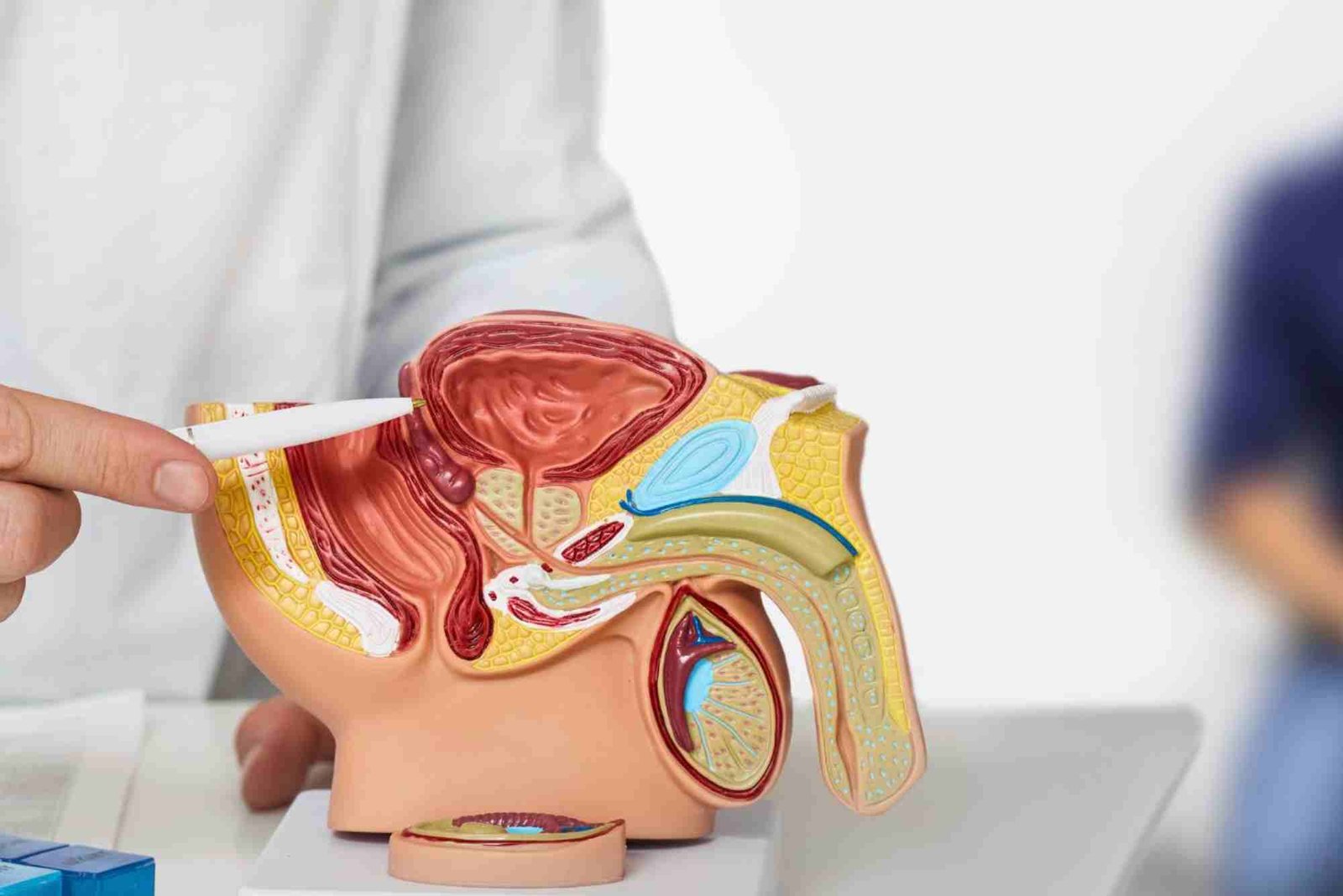Introduction
Benign Prostatic Hyperplasia (BPH) affects millions of men worldwide, often causing frequent urination, weak urine flow, and discomfort. While medications and surgical options exist, many men wonder: Can lifestyle changes improve prostatic hyperplasia symptoms? The good news is that targeted lifestyle adjustments can significantly ease BPH symptoms, enhancing quality of life without heavy reliance on medication. This article explores practical strategies, dietary tips, exercise routines, and daily habits that can make a real difference.
Understanding BPH and Its Impact
BPH occurs when the prostate gland enlarges, compressing the urethra. This can lead to urinary urgency, difficulty starting or stopping urination, and nighttime bathroom trips. Although the condition is not life-threatening, it can disrupt sleep, reduce energy levels, and affect emotional well-being. Understanding the root causes and triggers is the first step toward managing symptoms effectively.
The Role of Lifestyle in Symptom Management
Research and clinical experience suggest that lifestyle factors can influence BPH progression. Adjusting daily habits, diet, and physical activity can relieve pressure on the urinary system and support overall prostate health. While lifestyle changes are not a cure, they complement medical treatment and may reduce the need for medication.
Diet Adjustments That Can Make a Difference
Diet plays a key role in managing BPH symptoms. Certain foods and nutrients support prostate health, while others can worsen urinary symptoms.
Focus on Plant-Based Foods
Fruits, vegetables, and whole grains are rich in antioxidants and anti-inflammatory compounds. Tomatoes, for instance, contain lycopene, which has been linked to improved prostate health. Leafy greens like spinach and kale reduce inflammation and oxidative stress in the body.
Limit Red Meat and High-Fat Foods
Red meat and high-fat dairy products may exacerbate prostate enlargement. Reducing intake of fatty cuts, processed meats, and full-fat dairy can help control inflammation and support urinary function.
Include Healthy Fats and Nuts
Omega-3 fatty acids from fish such as salmon, and healthy fats from nuts and seeds, may have anti-inflammatory benefits. These nutrients help balance hormones and support overall cardiovascular and prostate health.
Hydration with Strategy
Proper hydration is essential, but excessive fluids before bedtime can worsen nighttime urination. Spread water intake throughout the day and reduce it two to three hours before sleep. Herbal teas and water are preferable over caffeinated beverages that irritate the bladder.
Physical Activity and Exercise
Regular exercise not only improves overall health but also supports prostate health and urinary function.
Aerobic Exercise
Activities like brisk walking, swimming, and cycling enhance blood flow and support hormone balance. Aerobic exercise can reduce inflammation and help maintain a healthy weight, which is linked to lower BPH risk.
Pelvic Floor Exercises
Kegel exercises strengthen the pelvic floor muscles, improving bladder control and reducing urinary urgency. Men can perform these exercises discreetly at home by contracting and relaxing the muscles used to stop urination.
Weight Management
Excess weight, particularly abdominal fat, is associated with more severe BPH symptoms. Regular physical activity combined with a balanced diet can help maintain a healthy weight, reducing pressure on the bladder and prostate.
Lifestyle Habits That Reduce Symptoms
Certain daily habits can have a surprising impact on BPH management.
Limit Bladder Irritants
Caffeine, alcohol, and carbonated beverages can irritate the bladder and worsen urgency. Reducing or eliminating these substances can ease urinary symptoms significantly.
Schedule Bathroom Visits
Timed voiding—urinating on a schedule rather than waiting for urgency—can train the bladder and improve control. Emptying the bladder completely each time also reduces pressure.
Avoid Certain Medications
Some medications, like decongestants and antihistamines, can worsen urinary symptoms. Consult a healthcare provider to explore alternatives if you experience symptom flare-ups.
Manage Stress
Chronic stress can increase muscle tension and urinary urgency. Practices such as yoga, meditation, and deep breathing promote relaxation and may reduce symptom severity.
Sleep and BPH
Sleep quality is often disrupted by frequent nighttime urination. Adopting healthy sleep habits, like keeping a consistent bedtime, elevating the legs before bed, and limiting evening fluid intake, can improve rest and reduce nocturia.
When Lifestyle Changes Aren’t Enough
While lifestyle adjustments are powerful, severe BPH may require medical treatment. Medications such as alpha-blockers or minimally invasive procedures can be necessary for significant obstruction or persistent symptoms. Integrating lifestyle strategies alongside medical care ensures the best outcomes. For detailed guidance, you can Learn more about supporting health through professional recommendations.
Adopting lifestyle adjustments can play a pivotal role in reducing BPH symptoms and improving overall well-being. By combining dietary changes, exercise, stress management, and strategic hydration, men can experience noticeable improvements. Lifestyle modifications are safe, non-invasive, and empower men to take control of their urinary health.
If you want to explore more insights on health and wellness, check out our Related Blog article and discover how small changes make a big difference. For further reading, our full blog collection is a great resource.
FAQs
Can lifestyle changes improve urinary flow in BPH?
Yes, dietary adjustments, exercise, and bladder training can enhance urinary control and reduce symptoms.
What foods worsen BPH symptoms?
High-fat meats, full-fat dairy, caffeine, and alcohol may aggravate prostate and bladder issues.
How much water should I drink if I have BPH?
Spread fluids evenly throughout the day and reduce intake two to three hours before bedtime.
Are pelvic floor exercises effective for men with BPH?
Yes, Kegel exercises strengthen muscles, improve bladder control, and reduce urgency.
Can weight loss help BPH symptoms?
Maintaining a healthy weight reduces pressure on the bladder and can decrease symptom severity.












